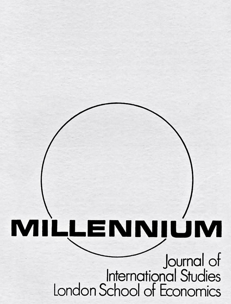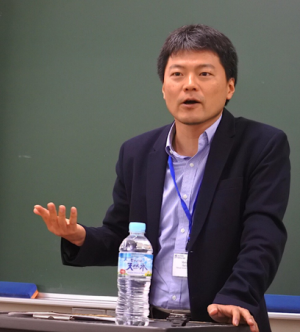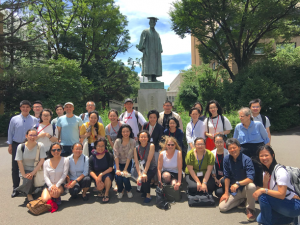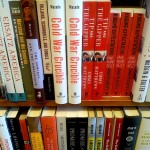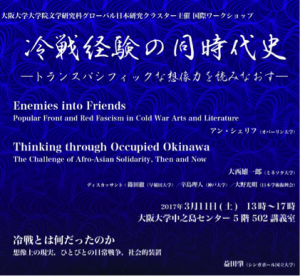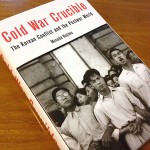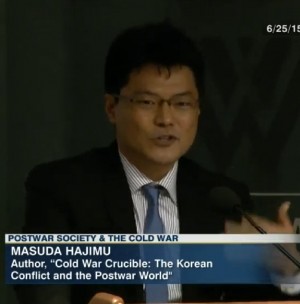I participated in the symposium as a panelist for the Senior Scholar Roundtable (“The Cold War in Asia”), as well as a discussant for a panel on “The Cold War in Asia: US and its Allies.”
I was invited to give two talks at the International Christian University (ICU) in Tokyo, one for the 2018 Asian Studies Conference Japan (ASCJ) annual meeting on June 30, 2018, and the other for the international workshop, “The Korean War as Transnational Postcolonial Conflicts,” on July 1, 2018.
I was invited to be a member of lecturing faculty for the Harvard-Yenching Institute’s Advanced Training Program, which was held at Waseda University, Tokyo, from June 25 to July 5, 2018, under the theme of “New Approaches in Asia-Pacific Studies.”
This is a superb work that bridges international and social history, underpinned by highly impressive research, to make arguments of real importance for our understanding of the Cold War.” -Rana Mitter
『冷戦とは何だったのか:想像上の現実、ひとびとの日常戦争、社会的装置』:冷戦についてこれまで多くのことが語られてきた。何百冊という書物が世界中で書かれ、多く学派が形成され、さまざまな側面が議論されてきた。しかし、その多くがもっとも単純で、根本的な問題を正面に据えることはあまりなかった。そもそも冷戦とは何だったのか。
Masuda Hajimu’s research focuses on the modern history of Japan and East Asia, the history of U.S. foreign relations, and the social and global history of the Cold War. A former journalist for Mainichi Shinbun and the author of articles in Foreign Policy, Diplomatic History, Journal of Contemporary History, and the Journal of Cold War Studies, he has analyzed the evolving power of the people in the modern world, regardless of any political spectrum, with particular attention to intersections between war and society and politics and culture in the mid-20th century. His first book, Cold War Crucible: The Korean Conflict and the Postwar World, published by Harvard University Press in …
“What Was the Cold War? Imagined Reality, Ordinary People’s War, and Social Mechanism”: This article draws on and extends parts of Chapter 8 and 9 concerning Japan’s Red Purge and China’s Suppression of counterrevolutionaries.
“What was the Cold War? Masuda Hajimu argues that it was more than an international confrontation between West and East blocs. It was also a social mechanism of purity and ordering at home, in the chaotic post-WWII world.”
Masuda Hajimu talked about the political climate surrounding the Cold War […], and argued that the Cold War transformed from an emergent global war to social warfare and ultimately a citizens’ war.

